Prime Minister Joseph Muscat said that British Prime Minister David Cameron is insisting he wants to wait until his successor is in place prior to Britain deciding on whether or not it will take the EU Presidency during the second half of 2017.
The British Prime Minister is apparently holding his ground, stating that no decisions will be taken until his successor takes over, a decision Maltese Prime Minister Muscat agrees with. Cameron's party has indicated that a new British Prime Minister will be in place by September.
Europe's heads of state and government were in a working dinner within the European Council. Such a statement is bound to bring about concern for the EU leaders, given that it takes preparation in order for a country to take over the Presidency. Should the UK refuse the Presidency, this would likely mean that a solution involving either Malta, who will be EU President during the first half of 2017, or Estonia will likely have to play a role, Dr Muscat explained.
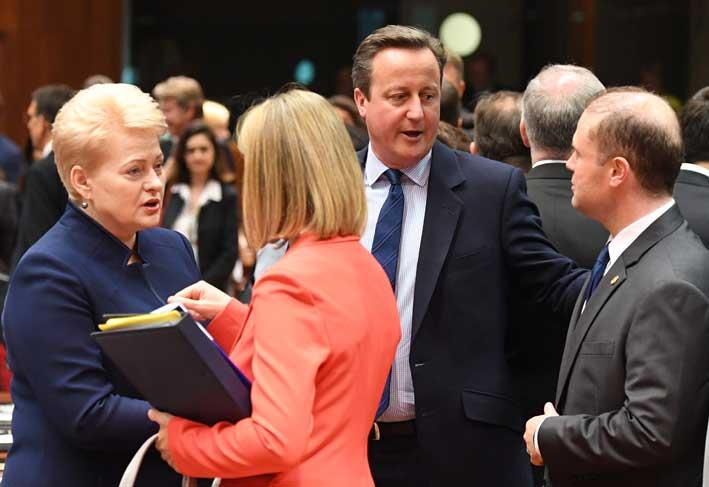
Prime Minister Joseph Muscat, responding to questions earlier in the day had said that Malta's preferred situation would be for Estonia to take over, however failing that, he said the possibility of Malta continuing on for three months, with Estonia launching its presidency three months early, indicates yet another possibility.
As for whether a quick decision would need to be taken on the Presidency, this will be discussed in tomorrow's informal meeting between the 27 member states, excluding the UK. Dr Muscat believes that waiting until December wouldn't see any major problems. "But obviously September does not mean December" when it comes to the UK taking decisions on the Presidency and officially triggering article 50 of the Lisbon Treaty.
Turning to the question regarding Scotland joining the EU, Dr Muscat said that Scotland would need to be a sovreign state. "There is a majority in Westminister and a majority in the Scottish Parliament for the UK to have the best relationship with the EU, and not go into isolation".
Prime Minister Joseph Muscat, said that no immediate effect on tourism in Malta will be seen through the Brexit, and any future effects would be more related to the exchange rate than anything else.

“We won't be the only ones eventually affected, as the question would be whether it is worth, for a British person, to go on holiday abroad or within Britain. Discussions are on-going with tour operators as to whether the new normal of the exchange rate will change the level playing field and to see how we can help”. As for the financial services sector, he said there are opportunities, and a demand of service providers in Britain looking to operate in Malta has been noted. “It is still early days but the work we have done over the past months has laid the bed. Our aim is to not go and actively steal jobs from the UK, but rather work with different British jurisdictions and British authorities for us to be a European base where they keep their jobs and new jobs be created in Malta”.
Prime Minister Joseph Muscat said that there are a number of Prime Ministers urging Britain to take their time heading towards an exit, instead of rushing in. “I believe that this is the more sensible approach as the UK has a caretaker government”.
Turning to the importance of article 50, he said that it is a clause within the EU treaty and as soon as a letter is sent, the clock will begin ticking. “The British would then have 24 months which can only be extended through agreement with the 27 other member states. If that clock runs out, the UK would exit the EU without any other form of settlement. The world won't end if we wait till September, but we cannot wait indefinitely,” he said, adding that thus far, the deadline seems to be September.
Dr Muscat argued that the British position as to the kind of relationship it wants with the EU is still unclear.
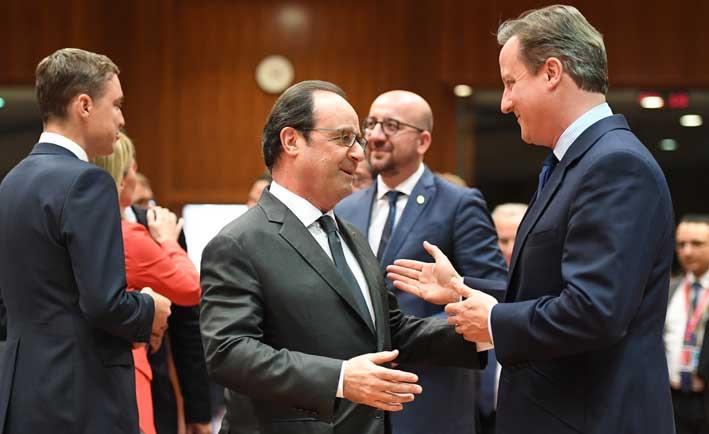
Asked, “what comes next?”, he said the EU needs to do some soul searching and not adopt a condescending tone against those who voted to leave. “We must really and truly understand their motivations. Their answer to leave the EU was wrong, but some of their motivations are understandable. The EU must talk and act about real bread and butter issues, such as migration”.
Turning to comments made by EU President Martin Schulz relating to the uncertainty on everyone's minds, and Dr Muscat's statement that there is no real uncertainty, the Prime Minister said that Martin Schulz is putting forward the view of the EU Parliament which is being hawkish in it's approach.
“I disagree on the issue of uncertainty as the worst has happened. It would be prevalent if we were in a situation where something worse can happen”.
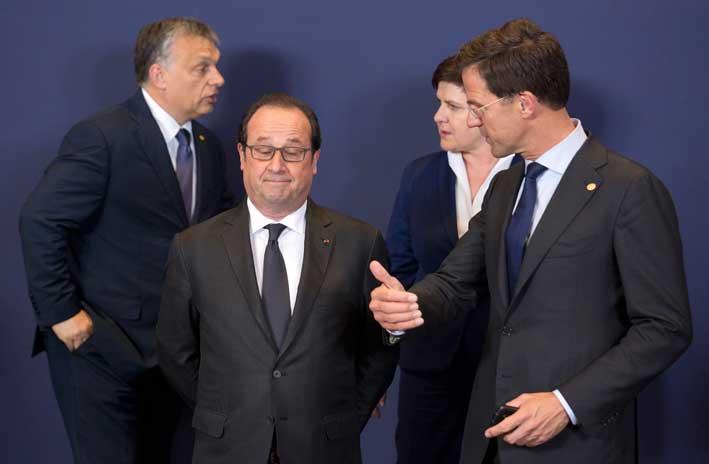
“The markets are assuming that Britain will not have access to the single market, but if they do there would be a big price to pay both politically and financially, in order to have access to the four freedoms, which includes the free movement of people. That hypothetical outcome however would mean that the main motivation for the vote leave falls through, and it would mean that all this would have been done just to have an inferior relationship level with Europe without any control”.
Asked about Malta's role in the negotiations during the EU Presidency, he believes Malta is well positioned and trusted by both sides. “Our commitment to the EU project is clear and we are also clear in saying that any arrangement the UK will have with Europe must be inferior”.
The Prime Minister has been stressing the need for Europe to reconnect to the citizens. Asked how he plans to do this during Malta's Presidency, Dr Muscat said it's a matter of attitude. “We will not come out with too many up in the air proposals, but really and truly this needs to be done by trying to implement the single market when it comes to the services sector. We believe that is paramount.
Asked what the direct and indirect repercussions on the Maltese economy, which sectors will be hit and how, Dr Muscat said that government has carried out in-depth studies and identified those economic operators that could be affected, not necessarily by Brexit, but by changes in the Forex market. Five companies in the manufacturing sector were identified that could have some effect on their order books. We have contacted them and offered them help, similar to that during the Libya crisis, should they need it.
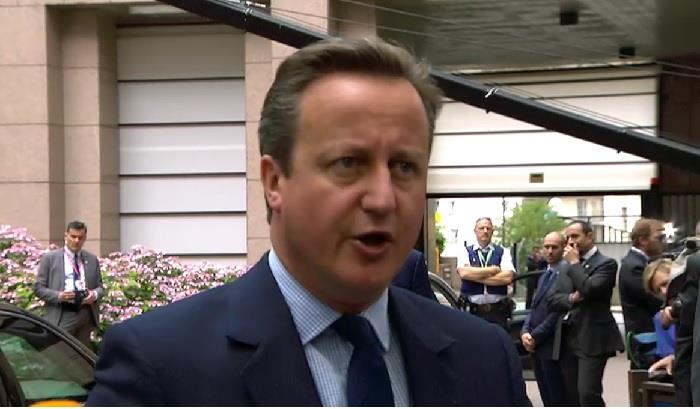
British Prime Minister David Cameron, during his doorstep comments, said that he will today explain to the Council that Britain will be leaving the EU, “but I want that process to be as constructive as possible. While we are leaving the EU, we must not turn our backs on Europe. These countries are our neighbours, our friends, our allies and our partners. I very much hope we will seek the best possible relationship in terms of trade and security, as that is both very good for us and for them. I believe these are the spirit in which the discussions to take place today will take".
President of the EU Council Donald Tusk said that while respecting the will of the UK voters, “we have to respect our treaties. According to them, it is the British government that must initiate the prospect of an EU exit, and it is the only way it can be done. Europe is ready to start the divorce process today, but we must be patient”.
“I would like to underline that without the UK's notification, we will not start any negotiations on the divorce process or future relations”.
President Tusk then spoke about his emotional state following the Brexit referendum announcement. “I feel as though someone left our home, but at the same time I felt how dear and precious this home is to me. Brexit is not only about politics and interest, but its about our emotions and feelings”.
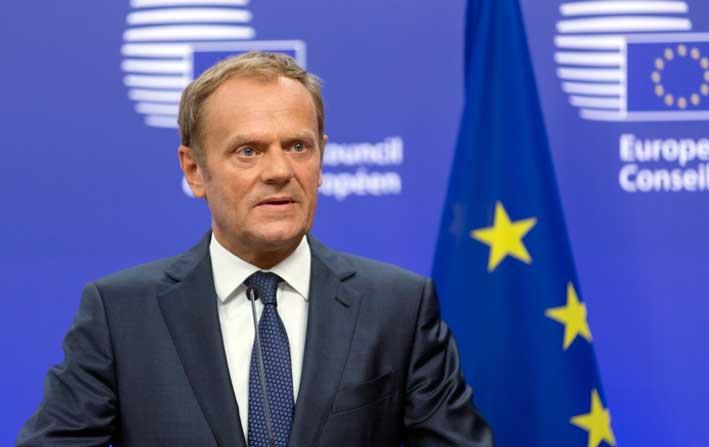
“What has happened, happened and we need to move on. This means today we will also discuss the migration crisis and how to stem the irregular influx, about cooperation with NATO etc”.
Earlier, President Tusk proposed a meeting between the 27 EU states (without Britain) in September to discuss the bloc's future.
German Chancellor Angela Merkel has warned the UK not to have any illusions about life outside the EU. prior to British Prime Minister Cameron's meeting in the EU Council. She said the UK cannot expect favored treatment once it leaves, and again reiterated that no informal talks about Brexit will take place until article 50 is triggered.
The European Parliament also held Brexit discussions, where a sparring session between European Commission President Jean-Claude Juncker and UKIP MEP Nigel Farage, who campaigned for Britain to leave the EU, broke out. Mr Juncker slammed Farage for making misleading claims which led to the Brexit decision.
Mr Farage claimed that "you (the EU) as a political project are in denial. You're in denial that your currency is failing. Just look at the Mediterranean. As a policy to impose poverty on Greece and the Mediterranean you've done very well... The biggest problem you've got, is that you have, by stealth and deception, without telling the truth the Europe, imposed upon them a political union".
Earlier in the day, Dr Muscat also delivered his doorstep comments. He said that he believes that the first country leaving the EU could perhaps be blamed on others, “but If a second country leaves Europe, we can only blame it on ourselves”.
Dr Muscat just arrived at the European Council Summit, and delivered some comments to the Maltese press. In the above statement, he was referring to the need to take action and solve the reasons why some people feel they are estranged from the EU.
Dr Muscat expressed his disappointment that during what he called the “largest political crisis the EU has faced”, the discussion has focussed purely on the Article 50 technicality.
“I don't know how many of the 500 million citizens living in Europe know of article 50. Obviously it will have to be implemented at some stage, and there are political and diplomatic questions surrounding that, however any UK deal must be more disadvantageous than a country in the EU currently has”.
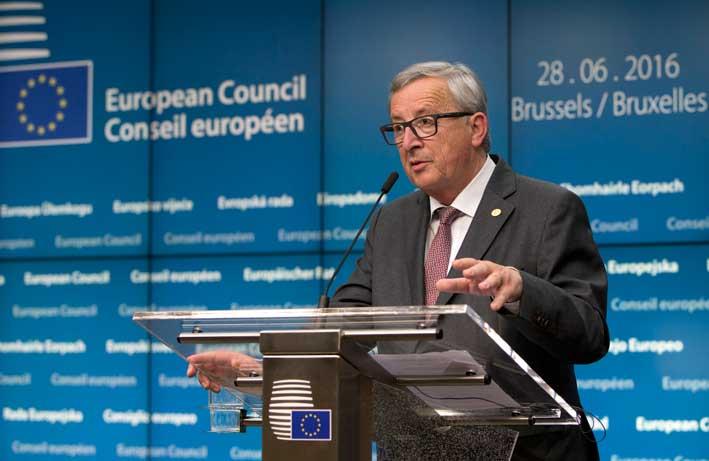
“We need to have a political discussion as to the causes of a Brexit, as I believe the motivation behind people who voted for the UK to leave the EU, is not purely felt by those in the UK only, but such sentiments are also present in sections of the populace in all EU countries”.
The major issue, he said, is that European citizens are feeling estranged from Europe. “It is our duty to take action”.
As for the question surrounding UK's presidency, he said that Malta's preferable position is that Estonia would take that slot, should the UK give it up. But if there is no agreement, another option would be for Malta to take three of the six months, and Estonia to take the other three.
Turning to the growing uncertainty, the Prime Minister said that he doesn't believe there is growing uncertainty in terms of the political situation. “People know what is coming next in terms of the political side and the technical side. I'm more interested in seeing the political solutions to make Europe work better”.
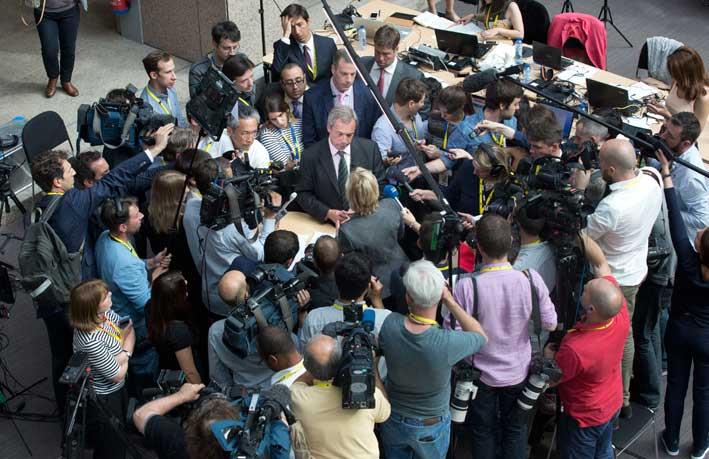
Council conclusions
The European Council summit conclusions have been released and highlight the need of partnership frameworks with countries of origin and transit on the migration issue, however the Brexit subheading has remained wide open without including any wording, possibly indicating the uncertainty of what the Council intends to say.
Earlier today, Prime Minister Joseph Muscat tweeted the following: "Talk of Art50 irrelevant for vast majority of Europeans. Fact that EU talking only about this rather than real issues says it all". The Prime Minister seems to believe that European leaders are too focussed on the technicalities relating to when article 50 will be implemented, rather than the real reasons behind the decisions made by the British people leading to the Brexit vote.
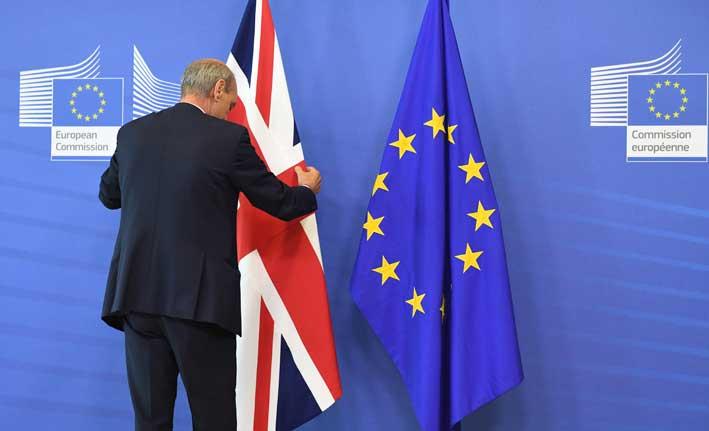
The conclusions released, state that further to the decision to fully apply the Schengen Borders Code and the implementation of the EU-Turkey statement, crossings from Turkey to the Greek islands have sharply decreased and have now almost come to a halt. "It is important to continue working actively to further stabilise the situation and to ensure a sustainable solution. The legislation recently adopted by Turkey on the treatment of both Syrians and other nationalities allows for the return of migrants to Turkey in full respect of the provisions on inadmissibility under the Asylum Procedures Directive. Considerable progress has been made by both sides to implement the full range of action points contained in the EU-Turkey statement and the European Council looks forward to further determined action".
The European Council reiterated the need to provide continued support to Western Balkan countries, including in their fight against smugglers, and to remain vigilant about potential developments regarding other routes so as to be able to take rapid and concerted action. "Further action is required to accelerate the implementation of the existing relocation and resettlement schemes.
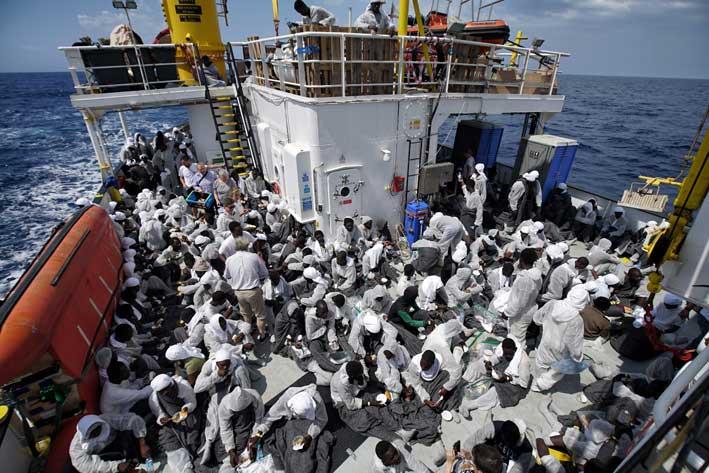
Turning to the Central Mediterranean, The Council stated that flows of predominantly economic migrants remain at the same level as last year and must be reduced, thus saving lives and breaking the business model of smugglers.
The conclusions also highlight that cooperation on readmission and return will be a key test of the partnership between the EU and these partners.
The High Representative, including in her role as Vice-President of the Commission, will lead the implementation of this new approach and ensure close and effective coordination between the EU institutions and services and the Member States, with a view to concluding the first Compacts before the end of the year. The Council and the Commission will regularly monitor the process, assess its results and report to the European Council.
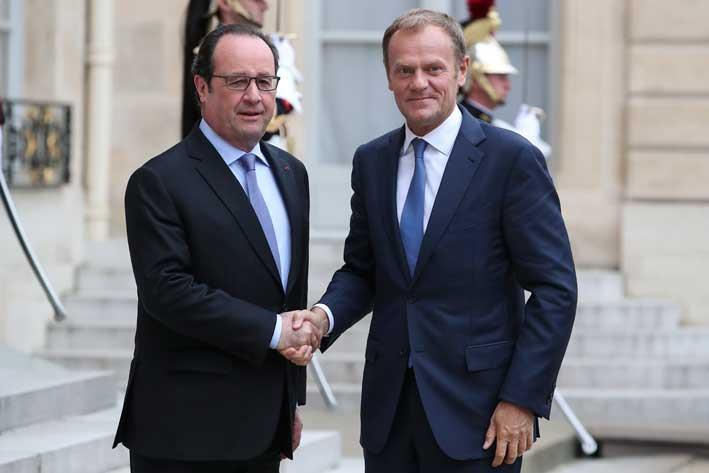
The conclusions also highlight that all relevant instruments and sources of funding should be mobilised in a coherent manner in support of the approach set out above. "The Council is invited to rapidly examine the proposals made by the Commission to that effect. In addition: the European Investment Bank's initiative in the Southern Neighbourhood and Western Balkan countries, as a first step in the new framework of cooperation, will help to foster investment in partner countries and has our full support. To implement this initiative swiftly, the Council is asked to rapidly explore how to provide the required resources; The Commission is invited to present by September 2016 a proposal for an ambitious External Investment Plan, which should be examined as a matter of priority by the European Parliament and the Council.
The conclusions indicate that the EU and its Member States will continue to address the root causes of illegal migration, in close cooperation and in a spirit of mutual ownership with the countries of origin.
The European Council also said that it will continue to address and monitor all aspects of the EU's comprehensive approach to the migration challenge, as set out in the European Council conclusions of October 2015. They will recall the need to reinforce the control of the EU's external borders to meet both migration and security objectives, it welcomes the political agreement between the European Parliament and the Council on the European Border and Coast Guard proposal and asks for its swift adoption and rapid implementation".

Jobs, Growth and investment
Turning to Jobs, Growth and investment, The EU Council said that it generally endorses the country-specific recommendations as discussed by the Council, thus allowing to conclude the 2016 European Semester.
It highlighted that delivering a deeper and fairer single market will be instrumental in creating new jobs, promoting productivity and ensuring an attractive climate for investment and innovation. "This requires a renewed focus across Europe. The European Council calls for completing and implementing by 2018 the different Single Market strategies and action plans proposed by the Commission".
They called for swift progress in bringing the Digital Single Market to onsumers, businesses, employees and administrations.
"A services passport, in line with the Council conclusions of 29 February 2016, will enable entrepreneurs in key sectors to offer their services in other member states without going through unnecessary procedures and will contribute to promoting innovation," the draft conclusions read, thus making it easier to access finance for businesses and to support investment in the real economy by moving forward with the Capital Markets Union agenda.

Single Market
The Council conclusions stated the need for better implementation and enforcement of existing legislation will further help to reap the benefits of Europe's Single Market ambitions.
The President of the European Commission also updated the European Council on on-going trade negotiations. The European Council will recall its previous conclusions on trade and will return to the issue for a comprehensive discussion at its forthcoming October meeting.

Fight against tax fraud, evasion and avoidance
The fight against tax fraud, evasion and avoidance, and against money laundering will remain a priority, both within the EU and internationally, the Council intends said. "The publication by the Commission of an Action Plan aiming at the creation of a modernised and fraud-proof single VAT area is also an important element of the overall approach".
The European Council intends to reiterate its readiness to support the Government of National Accord (GNA), and will call on all groups in Libya to work with the GNA as the sole legitimate government in Libya to restore stability, fight terrorism and tackle migration across the Central Mediterranean. In this context, the European Council will welcome the adoption of UNSC Resolution 2292 and the expanded role for Operation Sophia in enforcing the arms embargo on Libya and training the Libyan Coast Guard.
EU-NATO cooperation was also discussed in the presence of the NATO Secretary General.